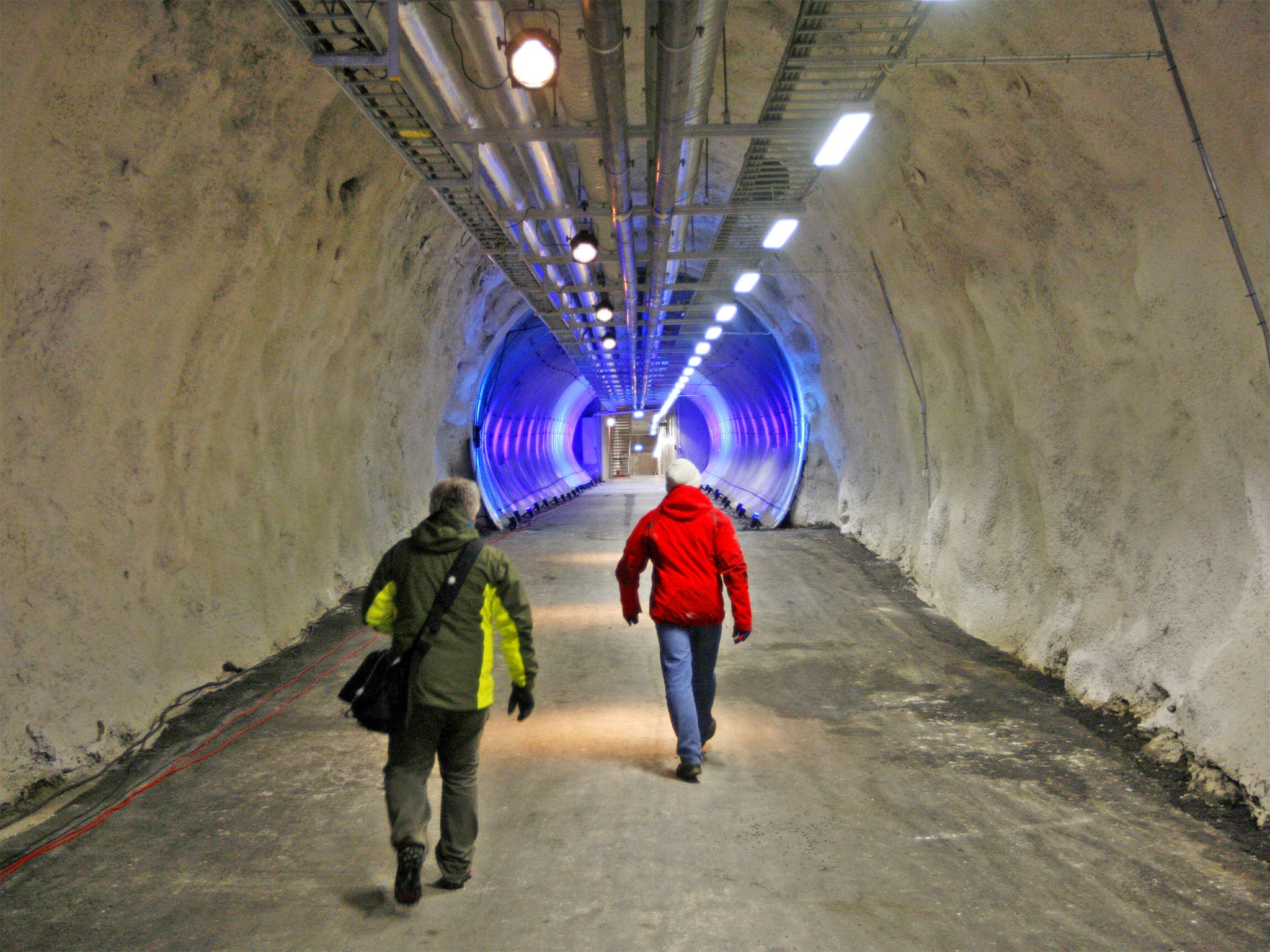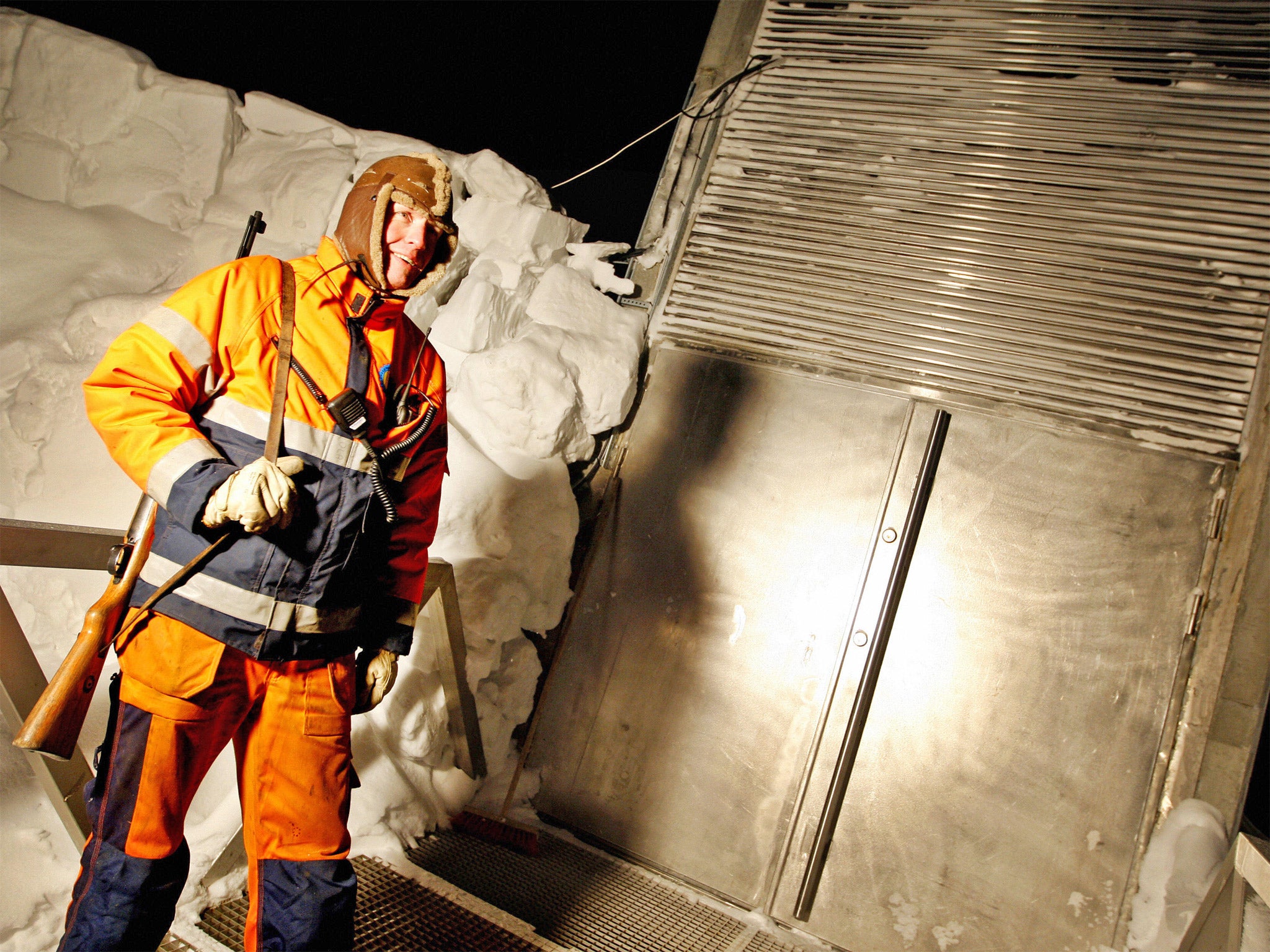Locked in the 'Doomsday Vault': Samples of more than 20,000 crops from 100 nations added to 800,000 existing stock at seed bank that will protect the world’s biodiversity in the event of a disaster
It cost £5m to construct and can withstand nuclear war, asteroid strikes and extreme weather

The world need no longer worry about running out of miso in the event of an apocalypse. A key ingredient in the Japanese soup was among thousands of samples locked away in the Arctic seed bank which has become known as the “Doomsday Vault”.
Varieties of Japanese barley – used in everything from miso to beer – will join the existing stock of 800,000 crops, which researchers have been collecting for six years to protect the world’s biodiversity in the event of a disaster. Samples of more than 20,000 crops from 100 nations were added to the Svalbard Global Seed Vault on the Norwegian island, including a rare red okra from Tennessee, a Brazilian bean, 195 samples of wild potato, and the “Unger’s Hungarian” cherry tomato from the US.
Marie Haga, the executive director of the Global Crop Diversity Trust, said the range of new samples was “a sort of winter Olympics of crop diversity”. But she warned they were competing against a “wide array of threats, natural and man-made, ranged against the diversity of food crops, diversity that is so crucial to the future of human civilisation”.
The Doomsday Vault, which cost £5m to construct, was designed to protect against such threats, and can withstand nuclear war, asteroid strikes and extreme weather. Behind an entrance carved into the rock on a remote island near the North Pole, a tunnel reaches 125m inside the mountain. There, behind four sets of air-locked doors, are three vaults, which can house up to two billion seeds. Because of its location under the ice, the seeds would be preserved even if all power was cut.

It was a natural disaster which prompted the Barley Germplasm Centre at Japan’s Okayama University to deliver the 575 duplicate samples. The 2011 earthquake and tsunami brought the realisation that the university’s current crop banks may not be safe. “If something bad happened to our gene bank, these resources could be damaged permanently,” Professor Kazuhiro Sato said.
“Barley is very important not just for Japan but for the world’s food security. We need to do everything we can to ensure they will be available to future generations.”
Join our commenting forum
Join thought-provoking conversations, follow other Independent readers and see their replies
Comments
Bookmark popover
Removed from bookmarks